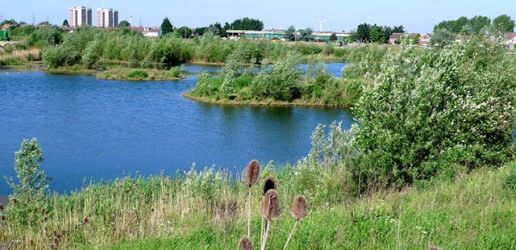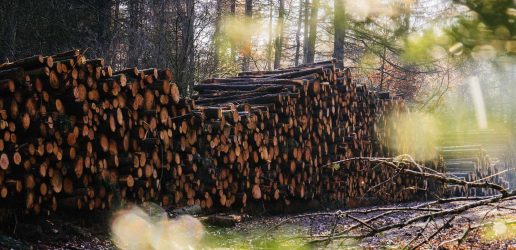
Editorial note: this News item has been amended to reflect the merger, in 2025, of the Forestry and Climate Change Partnership with the Defra Plant Health Policy Group. Defra’s Resilient Treescapes Advisory Group now provides a single forum for the monitoring, collaboration, discussion and delivery of non-government stakeholder-led actions to contribute to an overarching strategic vision to build the resilience of England’s trees, woods and forests to threats from pests, diseases and climate change.
Forestry, conservation and government organisations, including Forest Research have come together to reaffirm their commitment to work together to promote the importance of adapting trees, woods and forests to climate change.
The Forestry and Climate Change Partnership (FCCP) published the Forestry and Climate Change Adaptation Accord which set out a collective vision that Britain’s trees woods and forests are resilient to climate change and therefore able to meet their full potential to provide environmental, social and economic benefits.
Climate change and the associated environmental impacts including drought, flooding, fire, pests and pathogens present serious threats to the health of our trees, woods and forests. There is an urgent need to improve the resilience of both newly created and existing woodland to climate change. This requires significant change to widely accepted and practised systems of woodland and land management. Greater awareness is needed for the importance of adopting a broader range of species, diversity of genetics, age and stand structure, and improved connectivity in the landscape.
The FCCP was working to communicate the case for adaptation, to provide training and education, inform research priorities and contribute to policy development.
Dr Gabriel Hemery, Chair of the FCCP said:
The recently renamed Forestry and Climate Change Partnership represents an unusual level of collaboration and a powerful agreement to work together to make change happen, fast. Our trees, woods and forests are faced with unprecedented rates of climate change and increased environmental threats such as pests and pathogens. Only by working together, and with the support of individual woodland owners and professionals, will we be able to rise to meet these challenges, with an ambition to bounce back better.
The Accord was previously available on the FCCP website.
Recent News
View All news
New land regeneration resources for creating green spaces on previously used land now available
The new resources bring together the latest learnings on land regeneration and climate change, and optimal soil thickness for planting on previously used land.

New national survey launched to strengthen plant pest and disease detection across UK horticulture
UK horticulture and landscaping businesses invited to take part in survey to strengthen non-native plant pest and disease detection and reporting.
Forestry and timber businesses across the UK are being asked to take part in an annual survey programme to collect data about the UK timber industry.

New land regeneration resources for creating green spaces on previously used land now available
The new resources bring together the latest learnings on land regeneration and climate change, and optimal soil thickness for planting on previously used land.

New national survey launched to strengthen plant pest and disease detection across UK horticulture
UK horticulture and landscaping businesses invited to take part in survey to strengthen non-native plant pest and disease detection and reporting.
Forestry and timber businesses across the UK are being asked to take part in an annual survey programme to collect data about the UK timber industry.

